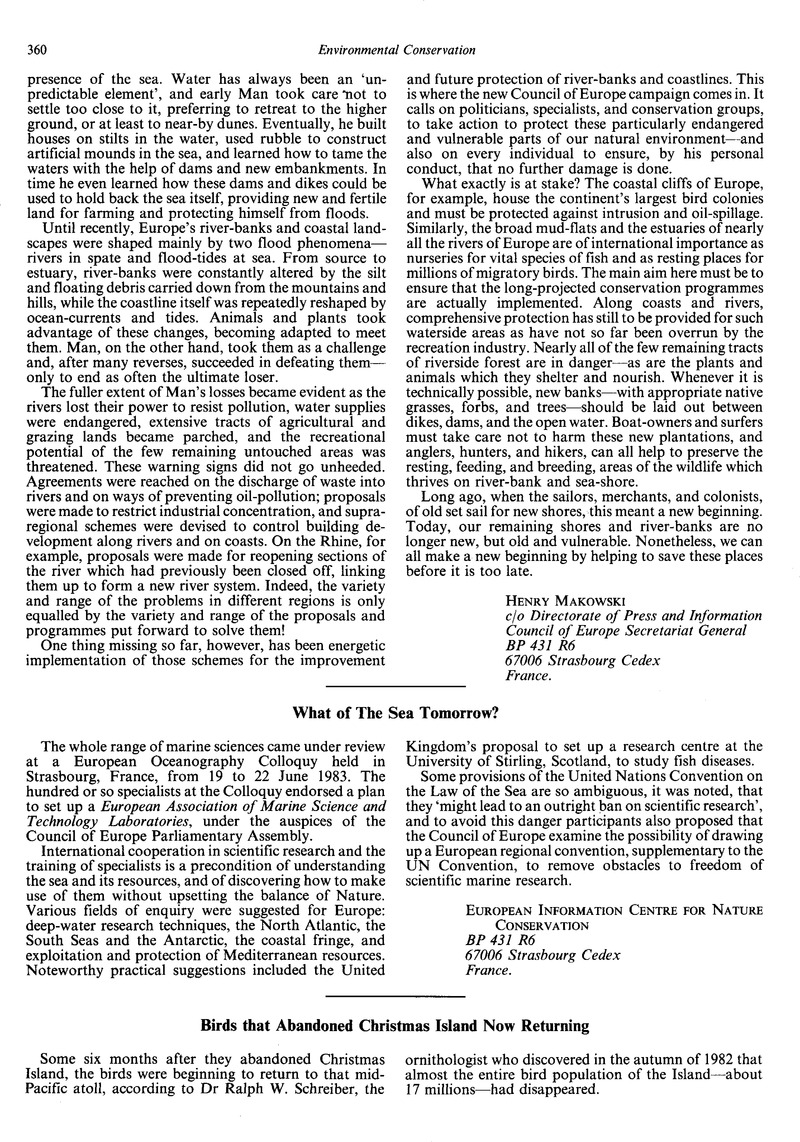No CrossRef data available.
Article contents
Birds that Abandoned Christmas Island Now Returning
Published online by Cambridge University Press: 24 August 2009
Abstract

- Type
- Notes, News & Comments
- Information
- Copyright
- Copyright © Foundation for Environmental Conservation 1983
References
* See the account by Professor Klaus Wyrtki of ‘Investigation of the El Niño Phenomenon in the Pacific Ocean’, published in Environmental Conservation, 2(4), pp. 281–2, 1975.—Ed.
† In response to our enquiries, Dr Schreiber wrote most interestingly (in lift. 8 August 1983): ‘El Niño is a recurring phenomenon and I suspect that the birds are adapted to the disappearance of their food. The publicity about our finding the birds gone last fall was a bit sensational. While adults abandoning their young to starve may be sad at first thought, the survival value to the species is evident, and will become more so as we continue to follow up on what is going on. It looks [as though] individual birds have been able to find fish and are starting to breed again. Individual selection seems to be working and this should make Mr Darwin happy …’. Three weeks later Dr Schreiber wrote us again: ‘We will be going back [to Christmas Island] in October and again in January, March, and June 1984, and are hoping … to continue to follow the situation for the next 3–5 years. We believe this “warm event” is an extremely valuable biological experiment that provides insight into the biological bottlenecks which animal populations must go through. It is now preliminarily obvious that some individuals are able to find food even in times of food stress for the whole population, and that individual selection does operate. It will be most interesting to see what happens over the coming years with the populations which are greatly reduced at present.—Ed.




